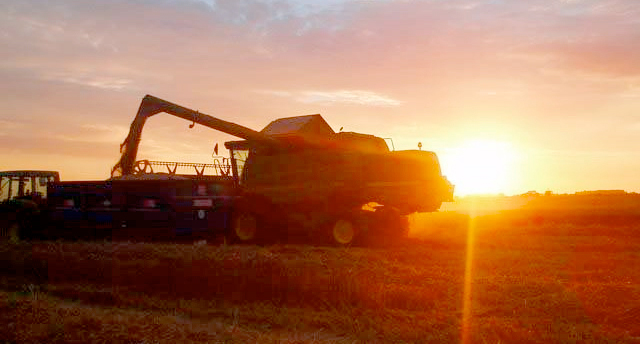
UK farming leaders and agricultural ministers will meet today in London to discuss the current issues affecting the farming industry.
Scottish Rural Affairs Secretary Lochhead has voiced his concerns over the impacts falling prices are having on the sector and at the meeting in London chaired by DEFRA Secretary of State Liz Truss he will call for an urgent coordinated response, including a UK-wide meeting with all major retail and food service providers.
Mr Lochhead said: “We are all very much aware of the issues currently facing farming ranging from the impact of the weather which has been particularly challenging in parts of northern Scotland to falling prices.
"Given that action will be required at Scottish, UK and European level, and given that these issues affect farmers in all our countries, a coordinated response is essential to give all our farmers support in their hour of need.
“That's why I will put it to the UK Secretary of State and other farming ministers that we should jointly invite all the UK’s major retailers and food service providers to meet and look at the steps we can take to support our food industries and support our primary producers.
"The last time that such a summit was convened by a UK Secretary of State was during the horsemeat crisis and now it's time for similar urgency and for Liz Truss to host such a meeting to get all those who wield influence in our food systems into the same room at the same time.
“I also encourage the public get behind the industry by supporting local produce.
"Too often retailers and food service providers crowd out local produce with imports but it's now time for a rebalancing act - we need a food system that protects our own producers."
NFU Scotland Chief Executive Scott Walker said: “Given the importance of the retail and food service sector to the fortunes of the nation’s farmers, it is crucial in the midst of this crisis that they take their responsibilities seriously.
“We welcome this call from Scottish Government for all key players to sit down and look for solutions. These should revolve around the need for farmers to receive a sustainable price for their produce if we are to ensure supplies of Scottish and UK goods for our consumers in the future.
"We would welcome the opportunity to meet retailers and the food service sector in private. That would provide scope for a frank discussion on the impact that sourcing and pricing policies can have on primary producers and what is needed to keep family farms in business.”
The unions assert the industry is in a crisis with some farmers losing almost 10p a litre and have called on UK farming ministers to face them and demand a solution.
They are calling on UK farming ministers to work together to address the problem.
Recently, protests have included removing large quantities of milk from shops and supermarkets and blocking distribution centres.
A national "milk trolley challenge" saw farmers removing all cartons from shops including Morrisons and Lidl before paying for them and taking them away or dumping them at the checkout.
Supermarket giant Morrisons will bite the bullet and meet farming industry leaders on Tuesday to discuss the price crisis.
In a joint statement, the leaders of the farming unions said: "UK farmers do have the potential to play an enormous part in the economic recovery of the UK and, at the same time, to provide much more of the food the country needs.
"Therefore we call on the UK farming ministers to meet jointly with us as soon as possible to identify what they can do to alleviate the very serious problems facing our industry and help UK farmers reach their very real potential."
Speaking before today’s emergency farming summit in London, TFA National Chairman, Stephen Wyrill said “Some of the UK’s major retailers are engaged in driving prices paid to farmers to such low levels that their ability to survive is in severe jeopardy.
"Fundamentally, this is against what we hear consumers want which is locally produced, high-quality food made to high animal welfare and environmental standards.
"Paying farmers below the cost of production for their produce today will mean that they will not be there tomorrow to deliver these legitimate consumer demands. Retailers need to change their attitudes and fast.”
“Consumers are fast becoming aware that retailers are not operating in their long-term best interests.
"Retailers who use practices such as reducing the retail price of milk to increase footfall in order to sell lamb at retail prices which have not moved for over a year even though farmers are being paid between a half and two thirds of what they were being paid a year ago, shows that some retailers are simply interested in short-term profit rather than long-term sustainability of the supply chain,” said Mr Wyrill.
